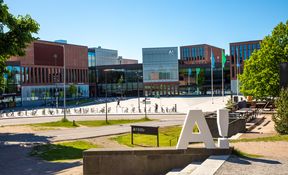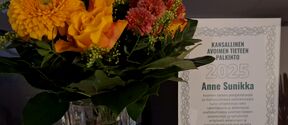Key Research Area: Living environments
We are developing interdisciplinary research to enhance planning and engineering, architecture and design for better living environments.

The City of Helsinki, the City of Espoo, the City of Vantaa and the University of Helsinki and Aalto University have agreed to implement a scientific cooperation for the development of the Helsinki Capital Region in 2024-2028.
Research grants can be awarded for research projects of a maximum duration of two (2) years, carried out at the University of Helsinki or Aalto University and focusing on cities in the Helsinki Capital Region. The total amount of funding available each year is approximately EUR 400 000, which can be used to fund 2-4 projects.
Funding is now available for the period 2025-2027, as described below. Funding decisions are made for one year at a time. The project may have a funding reserve of up to two years (24 months).
As described in the agreement, the funding will be available for research that studies the impact of different city policies or activities or is strongly related to and influences the activities of cities. The methodological focus of funded projects should be quantitative empirical evaluation research, causal research, studies in a randomized experimental setting, or modelling and simulation of the impact of future policies and policy options. Research using predominantly qualitative methods will not be funded, but qualitative research may be a complementary part of the research.
For the period 2025-2027, a research project can be funded on one of the themes listed at the end of these instructions (see the end of the newspiece).
To apply for research funding, the first step is to complete an initial two-page Research Idea Form, in which you will briefly outline your main ideas for the objectives and implementation of the research. The actual longer research plan will be requested at a later stage from those projects that are to be submitted for funding.
The cities are particularly interested in supporting new and experimental research approaches. In addition, the cities’ wish is that that research projects will use different types of numerical data that cities produce in their own activities.
The study can be a completely new project or a complementary part of an existing project. The funding
period can start at the earliest on March 1, 2025 and can last for a maximum of two years (24 months).
The Research Idea Form and in the later phase the longer research plan should include a description of where and how the research results can be used once the results are available.
To receive research funding:
The official administrative budget decision for the funding will be made in early 2025.
The Preliminary Budget Appendix, due by Oct 22, 2024, will be prepared according to your organization’s model and must identify the project:
Conditions for funding
Funding is available for
Funding will not be provided for
Research reporting to funders
An information session on research funding will be held on Thursday, October 3, from 11-12 on Teams, where you’ll have the opportunity to ask questions.
For further information
Jari Järvenpää, Secretary General / Helsinki Capital Region Science Collaboration
jari.p.jarvenpaa@hel.fi
p. 040 355 7304
Research on segregation and ways to influence it
Possible perspectives include the effectiveness of planned suburban regeneration and infill development, the effectiveness of housing policies, project-based resource allocation in the neighbourhoods, and the promotion of social sustainability.
The effectiveness of needs-based funding for city services
Some city services have had a funding model that varies according to the population composition of the area, while others do not yet have such resources. How might needs-based funding of services such as early childhood education, primary schools, secondary education or cultural and leisure services best support cities' goals of tackling inequalities?
Learning outcomes in primary schools and how to influence them
Expanding the knowledge base on factors that influence learning outcomes. Possible perspectives include digitalization and learning, leadership and pedagogical and didactic solutions, learning environments or social and emotional skills. Also, spatial differences in learning outcomes and differences in learning gaps or school readiness.
Drop-out risk in upper secondary education: developing proactive tools for teachers and learners
Is it possible to find identifiers from the data in the customer information systems of secondary education institutions that predict a learner's poor retention and potential risk of dropping out?
Well-being effects of cultural and leisure services
The (preventive) impact of cultural and leisure services on the health and well-being of residents.
Impact of new rail solutions
Impacts on, for example, overall mobility, commuting or vitality and economic activity of the neighborhoods, or impacts on more sustainable mobility, transport modes and emissions.
Impacts of supporting the vitality of city centers or sub-centres
For example, policies that target city centers or the impact of development measures in suburban sub-centers such as train station areas. Also, for example, the importance of private cars and parking for businesses in city centers.
Evaluating innovation activities supported by cities
For example, incubating early-stage business ideas, supporting innovation ecosystems, building or managing skill or business clusters.
Urban densification and climate change adaptation
A study of the impacts of implementing densification and adapting to climate change. Also, a study of the impact on the soil.
Transfer of employment services to municipalities and monitoring and evaluation of their effectiveness
Effectiveness of employment services, research on the employment of job seekers and the shortening of unemployment period.
The effectiveness of the municipal system of integration services
Evaluation of services related to immigration and integration. Allocation of resources and costs of integration services.
My own proposed topic: Empirical impact assessment study of the city's activities
You can also propose another research topic that meets the criteria for funding.

We are developing interdisciplinary research to enhance planning and engineering, architecture and design for better living environments.



